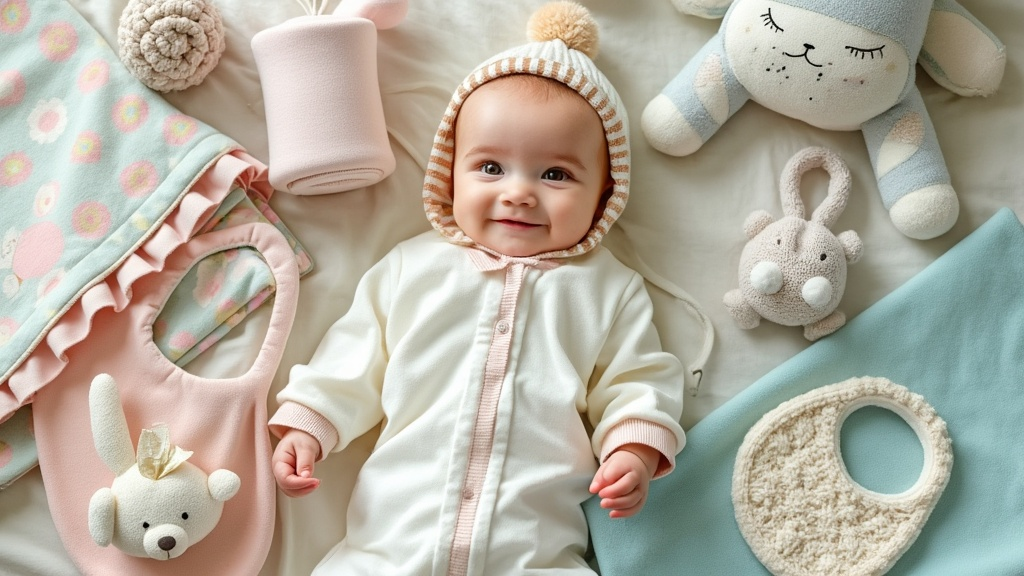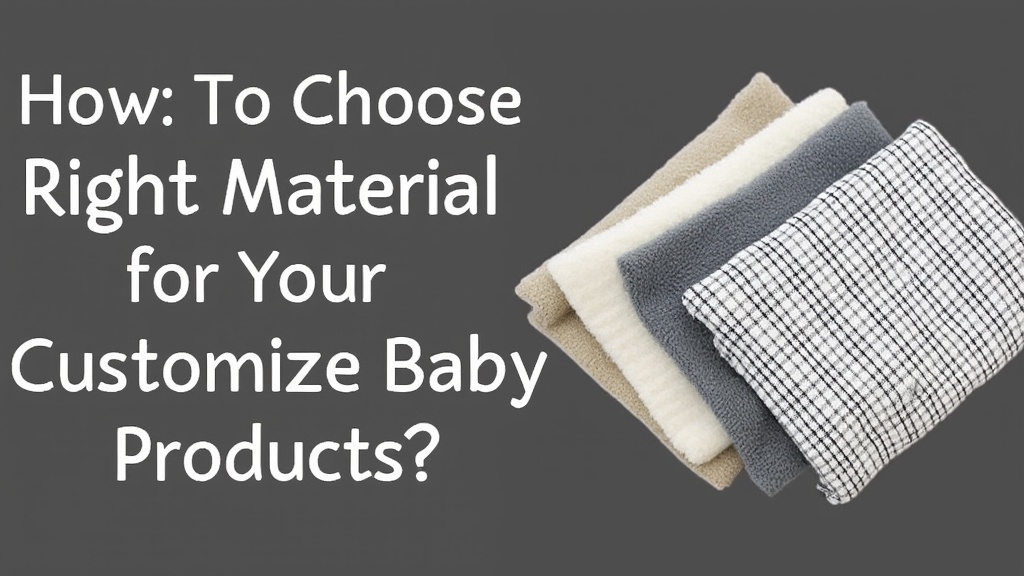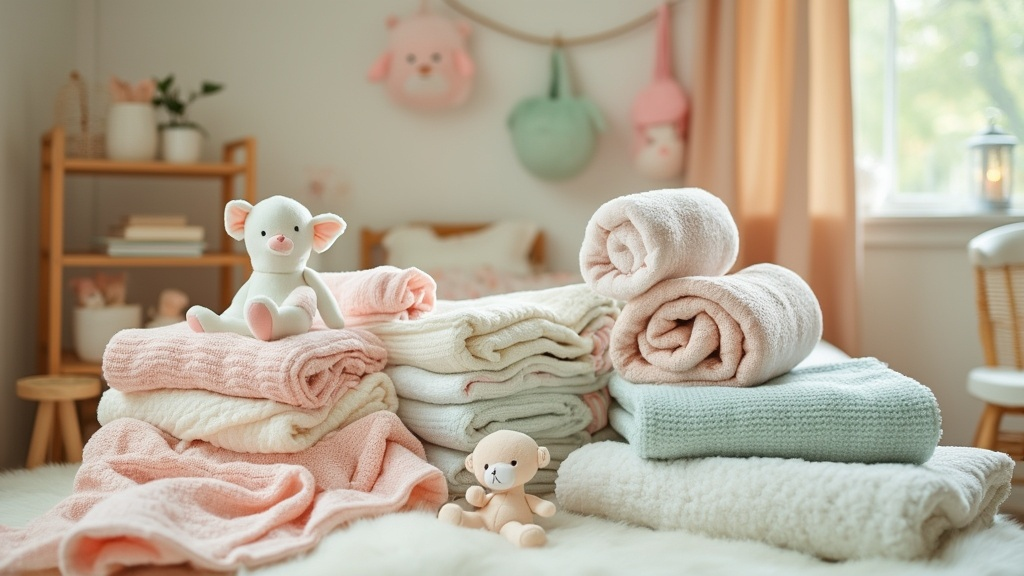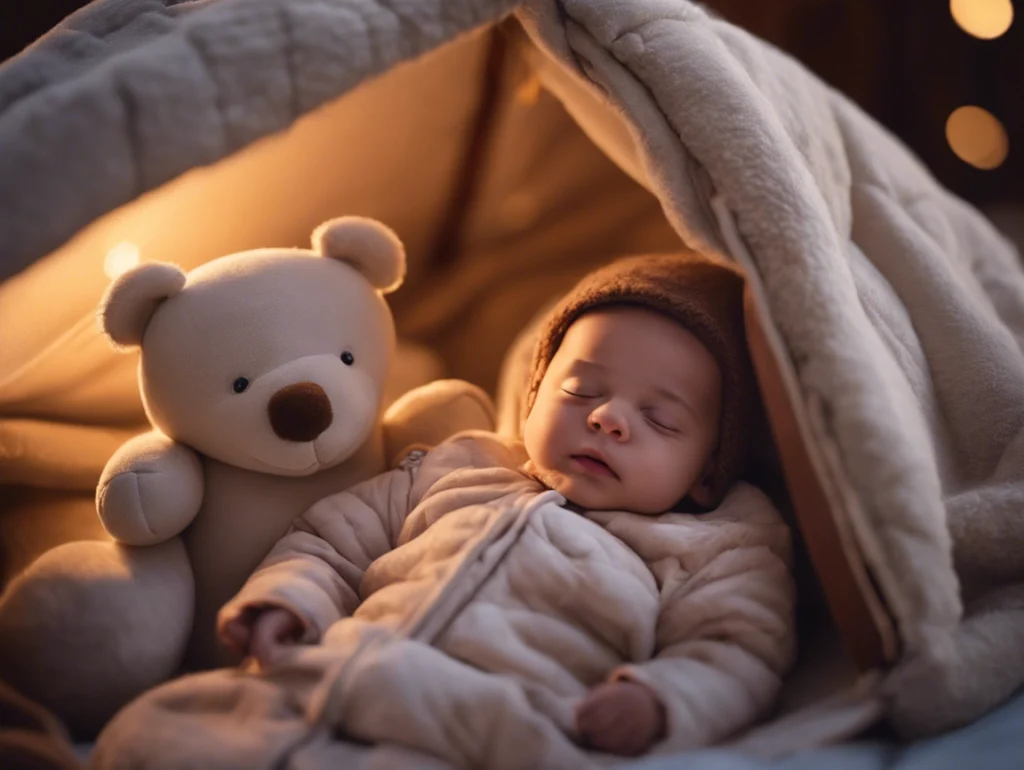When it comes to baby products, safety, comfort, and durability are non-negotiable. Whether you’re a retailer looking to customize baby bibs, blankets, or teething rings with your brand’s logo, or you’re a parent seeking the best materials for your little one’s accessories, understanding the various materials available for customization is crucial. After all, baby skin is delicate, and you want to ensure that whatever goes on it is both safe and high-quality.
In this article, we’ll dive deep into the materials commonly used for customized baby products, and explore their benefits, potential drawbacks, and the best ways to customize them. Plus, we’ll share some practical tips for choosing the right fabric and offer SEO-friendly insights to make sure your baby accessories are both functional and marketable.

Why Customizing Baby Products Matters
Before we jump into the nitty-gritty of materials, let’s first understand why customizing baby products with your brand’s logo matters so much. Here are some quick reasons:
- Brand Visibility: Customization makes your products stand out. A baby bib or blanket with your logo can be a walking advertisement, showing off your brand wherever the baby goes.
- Trust and Recognition: Parents are more likely to trust products they recognize. By customizing baby accessories, you’re building brand loyalty and trust from day one.
- Uniqueness: Custom products feel special. Parents love personalized items, and your brand can stand out by offering something a little different from the rest.
- Gift Appeal: Custom baby products make great gifts, and gift-worthy items often get a lot of exposure on social media!
Materials for Customizing Baby Products: The Lowdown
Now that we’ve established why customizing baby accessories is a great idea, let’s explore the materials you’ll encounter when personalizing those cute, functional products. From organic cotton to silicone, each material offers its own set of benefits—and sometimes, drawbacks.
1. Organic Cotton
Description: Organic cotton is one of the most popular materials used in baby products. Grown without synthetic pesticides, fertilizers, or genetically modified organisms (GMOs), organic cotton is the go-to fabric for parents looking for a natural and eco-friendly option for their babies.
Benefits:
- Soft & Gentle: It’s incredibly soft, making it perfect for delicate baby skin.
- Breathable: Organic cotton allows air to flow through the fabric, reducing the risk of overheating.
- Hypoallergenic: It’s less likely to cause irritation or allergic reactions.
Drawbacks:
- More Expensive: Organic cotton can be pricier than conventional cotton due to farming practices and certification processes.
- Wrinkles Easily: Unlike synthetic fabrics, organic cotton tends to wrinkle, which may require extra care during washing.
Best for: Baby clothes, bibs, blankets, and swaddle wraps.
| Material | Pros | Cons |
|---|---|---|
| Organic Cotton | Soft, hypoallergenic, breathable, eco-friendly | Wrinkles easily, more expensive |
Customization Tip: Embroidery works beautifully on organic cotton, allowing for intricate logos and designs without compromising softness.
2. Bamboo Fabric
Description: Bamboo fabric is a sustainable and eco-friendly material made from the pulp of bamboo plants. It’s incredibly soft and known for its antibacterial properties.
Benefits:
- Super Soft: Bamboo fabric is incredibly soft, often softer than cotton.
- Naturally Hypoallergenic: It’s a great option for babies with sensitive skin or conditions like eczema.
- Moisture-Wicking: Bamboo fabric absorbs moisture efficiently, keeping babies dry and comfortable.
Drawbacks:
- Expensive: Bamboo fabric can be costly, especially if it’s sustainably sourced.
- Processing Chemicals: Some bamboo fabrics are processed with chemicals that can affect their eco-friendliness.
Best for: Baby clothes, bibs, blankets, and towels.
| Material | Pros | Cons |
|---|---|---|
| Bamboo Fabric | Super soft, hypoallergenic, moisture-wicking, eco-friendly | Can be pricey, some fabrics processed with chemicals |
Customization Tip: Heat transfer printing works well on bamboo fabric, especially for vibrant designs.
3. Silicone
Description: Silicone is a durable, flexible material that’s often used for baby accessories like teething toys, pacifier clips, and bottle holders. It’s non-toxic, hypoallergenic, and can be molded into various shapes.
Benefits:
- Non-Toxic & Safe: BPA-free and food-grade certified, making it perfect for baby products that end up in the mouth.
- Easy to Clean: Silicone can be washed easily, which makes it a parent favorite for teething toys.
- Durable: It’s highly resistant to wear and tear, meaning it lasts longer than many other materials.
Drawbacks:
- Limited Design Options: While silicone is flexible, it can be hard to customize with certain designs, especially if you want intricate logos.
- Not Fabric-Based: If you’re looking to customize traditional clothing items, silicone won’t be the material for you.
Best for: Teething rings, pacifiers, and other baby accessories.
| Material | Pros | Cons |
|---|---|---|
| Silicone | Non-toxic, easy to clean, durable | Limited customization design, not fabric-based |
Customization Tip: Silicone accessories like teething rings can be engraved with your logo for a long-lasting brand impression.
4. Polyester
Description: Polyester is a synthetic material widely used in baby products due to its durability and ability to retain color. It’s often blended with other fabrics like cotton to enhance the durability and comfort of the product.
Benefits:
- Durability: Polyester is strong, resistant to shrinking, and holds its shape well after washing.
- Quick-Drying: It dries faster than natural fibers like cotton.
- Color Retention: Polyester retains color well, making it ideal for products with bold prints or logos.
Drawbacks:
- Not Breathable: Polyester isn’t as breathable as natural fibers, which may cause discomfort in warmer weather.
- Synthetic: Some parents prefer to avoid synthetic materials due to environmental concerns.
Best for: Baby blankets, bibs, and outerwear.
| Material | Pros | Cons |
|---|---|---|
| Polyester | Durable, quick-drying, color-retention | Not breathable, synthetic material |
Customization Tip: Screen printing works wonderfully on polyester, especially for vibrant and bold logos.
5. PUL (Polyurethane Laminate)
Description: PUL is a fabric laminate often used for waterproof baby products, like diaper covers and bibs. It’s a coated fabric that is durable and water-resistant.
Benefits:
- Water-Resistant: Ideal for bibs, diaper covers, and anything that needs to be waterproof.
- Soft Yet Durable: PUL is flexible and soft to the touch but strong enough to withstand frequent use.
Drawbacks:
- Not Fully Breathable: While it’s water-resistant, it isn’t breathable, which can cause discomfort during prolonged use.
- Limited Fabric Designs: PUL can be less customizable in terms of fabric patterns and colors compared to other materials.
Best for: Diaper covers, bibs, and waterproof accessories.
| Material | Pros | Cons |
|---|---|---|
| PUL | Waterproof, soft, durable | Not breathable, fewer design options |
Customization Tip: PUL works best for larger, bold designs, especially when using screen printing.
How to Choose the Right Material for Your Customized Baby Products?

Selecting the best material for your customized baby products comes down to the functionality of the product, the comfort it provides, and how safe the material is for babies. Here are a few questions to consider:
- What’s the Product’s Purpose?
- If it’s for comfort (like a blanket), choose soft, breathable fabrics like organic cotton or bamboo.
- For something more durable (like a teething toy), opt for silicone or polyester.
- Is the Material Safe?
- Ensure the material is non-toxic, BPA-free, and complies with safety regulations such as CPSIA (Consumer Product Safety Improvement Act).
- Always check for certifications like OEKO-TEX® for fabric safety.
- What’s Your Budget?
- Organic cotton and bamboo are higher-end options, while polyester and silicone tend to be more affordable.
FAQs About Customizing Baby Products
1. Can I customize baby products made from eco-friendly materials?
Yes! Organic cotton, bamboo fabric, and even food-grade silicone are great eco-friendly materials for customization. Just ensure your manufacturer is using certified organic or sustainable practices.
2. How long will the customization last on baby products?
The longevity of customization depends on the material and method. Embroidery and engraving tend to last longer, while heat transfers and screen printing may fade over time, especially with frequent washing.
3. Can I wash customized baby products?
Yes! Most customized baby products (except for some delicate ones) can be washed. Just be sure to follow care instructions to preserve the integrity of your logo or design.
4. Can I use recycled materials for customization?
Absolutely! Recycled polyester and upcycled cotton are becoming increasingly popular for sustainable baby products. Check with your manufacturer to see what options are available.
Conclusion: Customizing Baby Products with the Right Materials
When it comes to customizing baby products, choosing the right material is key. From the soft and eco-friendly qualities of organic cotton to the durability and safety of silicone, each material has its place in creating the perfect customized baby accessory. Whether you’re looking for something stylish, functional, or both, understanding the pros and cons of each material ensures that you make the right choice for your product line.
Ready to take your baby product customization to the next level? Check out Endearing Baby for eco-friendly and customizable baby items, or reach out to us for personalized solutions.

